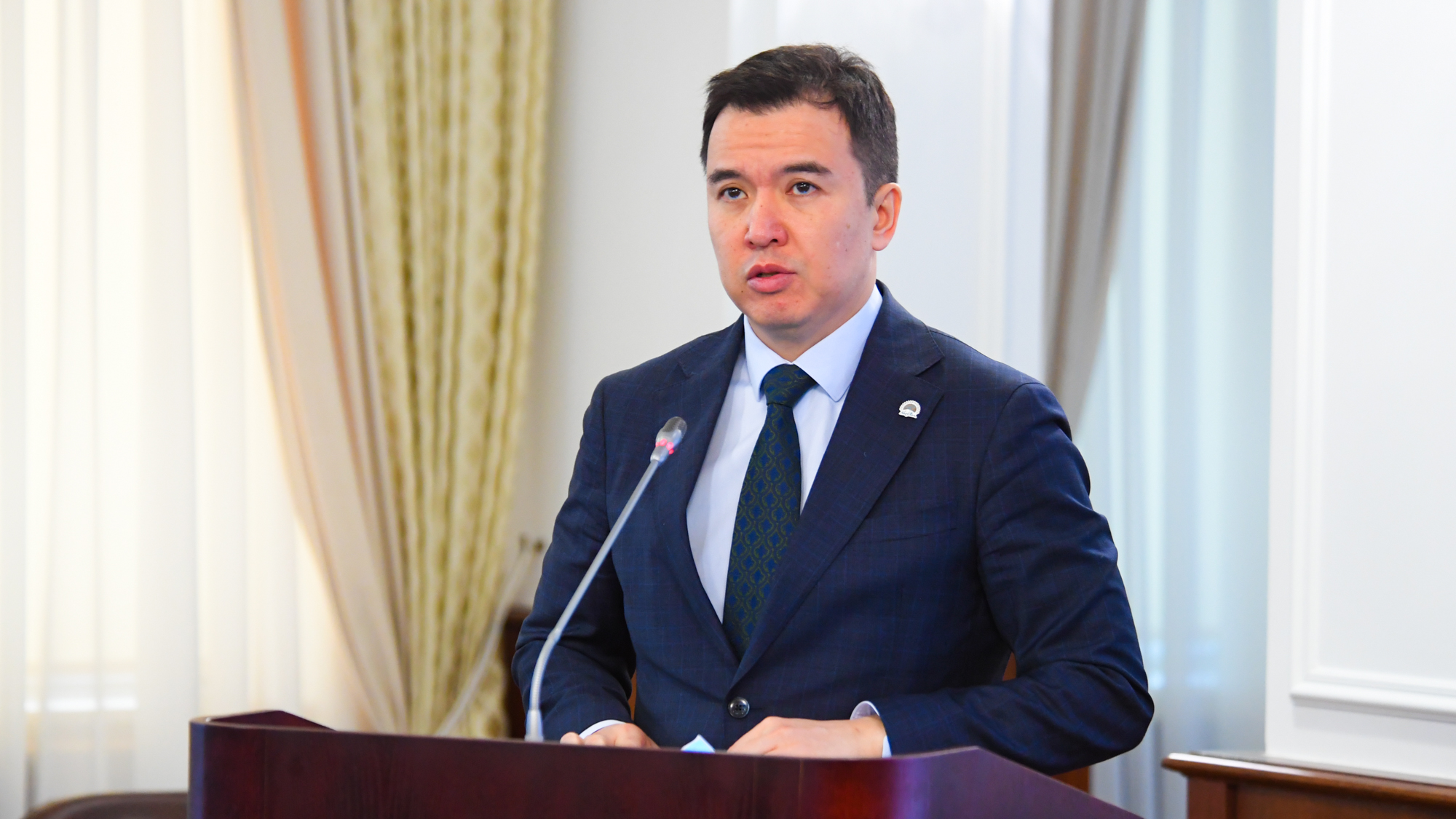NUR-SULTAN – Kazakh Minister of National Economy Ruslan Dalenov summarized his ministry’s plan to fulfill the tasks set out by Kazakh President Kassym-Jomart Tokayev in his state-of-the-nation address, reported Kazakh Prime Minister’s press service.

Ruslan Dalenov. Photo credit: primeminister.kz
The ministry will focus its efforts on five areas – development of entrepreneurship, enhancement of tax and budget policy, attracting investments, balanced regional development, and public administration.
In line with Tokayev’s instruction, subsidies will be provided to small and medium-sized enterprises with interest rates of up to six percent per annum for 12 months starting March 16, when Kazakhstan declared the state of emergency and closed nonessential businesses.
The measures will be included in the nation’s Business Roadmap 2025.
“A set of measures will be adopted to further improve the business environment. They include the automation of the risk management system, the revision of all regulatory requirements, and the suggestion of new measures to reduce them through the creation of a commission. The measures will be taken to introduce an institute of regulatory appeal by amending the Entrepreneurial Code,” said Dalenov noting that the ministry will also gear up financial and nonfinancial state support measures.
Head of the Agency on Regulation and Development of Financial Market Madina Abylkassymova said that maintaining access to financing and lending is a priority for her agency.
“During the period of the state of emergency, small and medium-sized businesses had a chance to defer their loan payments. From March 16 until June 15, 12,455 small and medium-sized businesses were granted loan deferral, which accounts for 41.5 percent of the total number of borrowers, small and medium-sized businesses. The total amount of deferred payments made up 164.8 billion tenge (US$392.3 million),” said Abylkassymova.
By enhancing the tax and budget policy, the government will seek to decrease the tax burden on businesses. According to the ministry, the nation’s tax code envisions 12 types of taxes, 46 subtypes of taxes, 10 payments, and 6 fees.
Dalenov said that the ministry will explore the possibility of paying retail turnover tax on an alternative basis for the most affected sectors of the economy and differentiating tax rates.
A set of key budget coefficients and an assessment of the effectiveness and sustainability of budgetary policy will be developed.
In his address, Tokayev said that the government will introduce a strategic investment agreement as a new instrument to seal an agreement made between the state and investors. The list of projects to be included in the strategic agreements will be finalized by April 2021.
Dalenov said that all projects will be reviewed by the nation’s Coordination Council on Investments.
In implementing the investment projects, Tokayev noted the need for greater use of the Astana International Financial Centre.
Regional development, one of the ministry’s five focus areas, will be part of a strategy geared at determining the competitive advantages of each region, addressing infrastructure development in rural areas and expanding the financial capacity of rural areas, among other measures.

